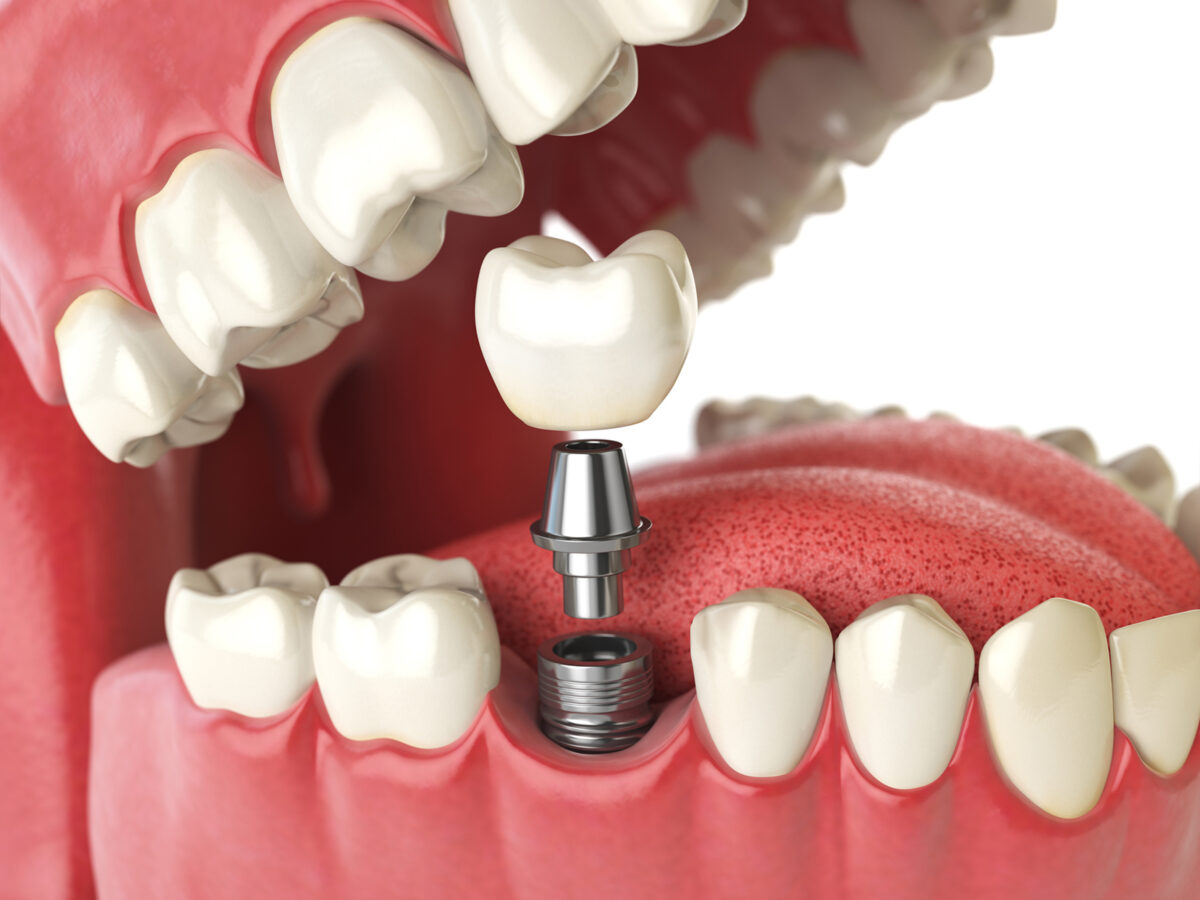Blog
Dental hygiene tips for healthy teeth & gums

If You Have Gum Disease, Can You Get Dental Implants?
If gum disease is not treated in time, it results in tooth loss, and patients are left wondering if they can get dental implants in such a condition. Even if you do not have tooth loss but suffer from periodontitis (an advanced form of gum disease), you may want to replace the missing or loose teeth and might want to replace the affected teeth.
So, is it possible to get dental implants if you have oral issues? Modern dental technology has advanced in leaps and bounds, and most obstacles can be overcome now. Before fitting the appliance, you can treat any condition adversely affecting implant fixing.
A healthy gum is important for a dental implant’s success as it needs proper support from the jawbone and underlying tissues. But with the latest technologies and procedures, a patient with receding gum can still go for implants by going for grafting before having the fixture.
As you read through the article, you will understand all the necessary things which need to be in place for placing dental implants.
What are Dental Implants?
If you have missing teeth, it can hugely impact your mouth’s functioning and appearance. Dental implants come to your rescue at this juncture and are the best replacement for missing teeth or teeth.
- They are usually made of titanium or zirconium oxide. However, some other metals, such as cobalt-based alloys, titanium alloys, gold alloys, or ceramic-based materials, are also used to make them.
- The implant is made to fit in your mouth and act as the root of your tooth. It is then topped off with a bridge, crown, or any natural-looking restoration.
Advantages of Implants
Dentists highly recommend dental implants as they come with a lot of advantages, as listed below:
- They look like your natural teeth
- They restore mouth functions such as speaking and chewing effortlessly.
- They prevent bone loss.
- They add stability and durability to your oral structure.
What is Gum Disease
Periodontal disease is caused by plaque (a bacteria film) sticking to the oral region.
- Periodontitis is a severe form of gum disease that leads to tooth loss.
- Periodontitis also increases your risk of diabetes, heart attack, stroke, coronary artery disease, and certain types of cancer.
- Manifestations of gum disease can be any such as:
- Swollen, tender, and red gums that bleed easily.
- The gap between your teeth.
- Receding gum line
- Loose teeth.
Gum Disease and Dental Implants
The dental implants are inserted directly into the jawbone and left to heal for four to six months. At this time, they are supposed to fuse to the jawbone via a process known as osseointegration.
- The underlying bone matter must be thick and wide enough to support the faux root. If the jawbone is deteriorating due to periodontitis, it might be unable to support the appliance.
- Our gums surround our natural teeth’ roots and lower crowns; the same is needed for implants. If you have gum disease which has not been treated, it will continually eat away at the gums, and the fixture will not get enough support to remain fixed.
- You can undergo specific procedures to qualify for implants even if you have periodontal disease. Depending on the severity of the disease, your dentist would suggest the right course of action for you.
- If the gum disease is mild or moderate, you need to control the issue by following strict oral hygiene and professional dental cleaning. Your dentist might advise you on lifestyle changes, such as quitting smoking, chewing tobacco, or consuming alcohol.
- If your periodontal disease has advanced, your dentist might refer you to an oral surgeon who can determine if you require bone or gum grafting. In bone grafting, the surgeon uses bone from other areas of the patient’s body, such as the hip, tibia, jaw, or donor bone, to build up the bone structure. In gum grafting, surgeons take healthy tissue from the roof of the patient’s mouth to correct gum recession.
Dental implants need healthy gums and bones; not everyone can fix them immediately. But those with periodontal disease can get implants, and your oral health care provider is the best person to determine the plan of action for you to be able to get the appliance fitted. Bone and gum grafting are two techniques an oral surgeon would need to use if your oral structure is not strong enough to support the faux root.


